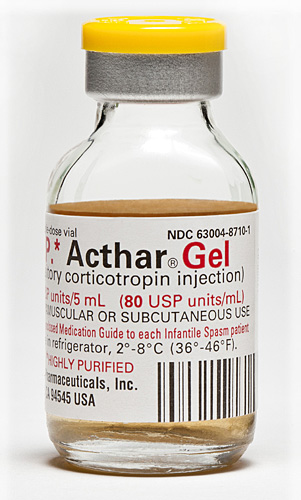Acthar Gel of Dubious Value in Treating MS Despite its $34,000-Per-Vial Cost, Study Finds
Written by |

Medicare spent more $650 million in 2013 and 2014 on one single medication — H.P. Acthar Gel —— that was prescribed by fewer than 1 percent of clinicians to treat multiple sclerosis (MS), with questionable results.
That’s the conclusion of new research by Oregon Health and Science University (OSHU), which presented its findings Feb. 23 at the Americas Committee for Treatment and Research in Multiple Sclerosis (ACTRIMS) 2017 Forum, in Orlando, Florida.
Two OSHU researchers decided to investigate how much Medicare was spending on Acthar after newspapers reported that its price — once $40 per vial — had jumped from $748 in 2001 to $34,034 in 2014. That translates into more than $100,000 to treat one patient with a short course of Acthar, compared to prednisone or similar steroids that cost no more than a few hundred dollars.
With this difference in price, treating one patient with a short course of Acthar could cost over $100,000. For comparison, prednisone or similar steroids would cost no more than a few hundred dollars.
“I was shocked at how much money Medicare was paying for prescriptions of Acthar,” Dennis Bourdette, MD, said in a news release. He and Daniel Hartung, PharmD had previously written an article, “The cost of multiple sclerosis drugs in the U.S. and the pharmaceutical industry: Too big to fail?” for the journal Neurology.
Acthar, developed in the 1950s and sold in 2001 to Questcor Pharmaceuticals — which in turn was acquired in 2014 by Mallinckrodt — stimulates the adrenal glands to produce natural steroids, with similar effects as prednisone and other synthetic anti-inflammatory steroids. Mallinckrodt recently agreed to pay $100 million to settle an anti-competitive lawsuit over the drug, which brought the British company more than $1 billion in 2015 revenues, according to a legal complaint filed by the Federal Trade Commission.
“Because of the tremendous cost, you really should have evidence that it’s superior and beneficial compared to much cheaper forms of generic steroids, like prednisone,” said Hartung, noting the lack of evidence that Acthar is actually better than low-cost steroids for treating MS episodes. “We question why a small number of physicians are prescribing this extremely expensive drug when there are much cheaper alternatives.”
With support from the National Multiple Sclerosis Society, the researchers looked into publicly available data from Medicare Part D and discovered that fewer than one out of 100 clinicians actually prescribed Acthar in 2013 and 2014. In fact, just 274 neurologists, nephrologists and rheumatologists were responsible for about 40 percent of Medicare’s expenditures on Acthar; together, these physicians had prescribed Acthar 11 or more times in those two years alone.
When the U.S. Food and Drug Administration (FDA) approves a new prescription drug, Medicare must cover its cost.
“Many people are advocating for Medicare to be allowed to negotiate directly with the pharmaceutical industry,” said Hartung. “This is a good example where Medicare could save a lot of money if it had the discretion to negotiate prices or even not to cover a drug because of its high cost compared to more inexpensive alternatives. Prescribing Acthar for multiple sclerosis or other autoimmune diseases costs society too much money and is irresponsible.”
Acthar was originally developed to treat infantile spasms, a rare form of epilepsy. In recent years, it had been aggressively marketed as a treatment for other conditions, including MS.
“Physicians should stop prescribing Acthar for anything other than infantile spasms,” Bourdette concluded.


